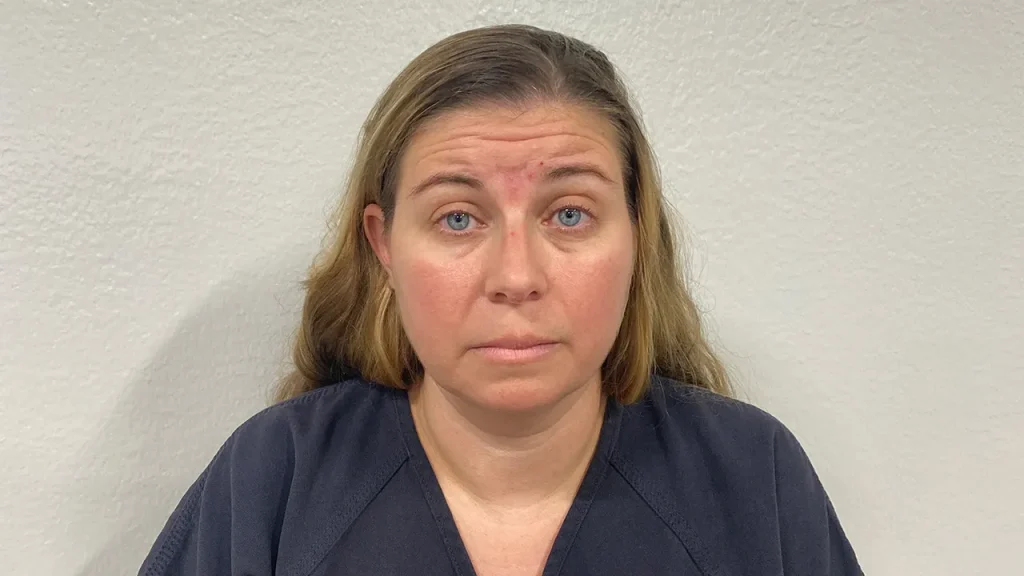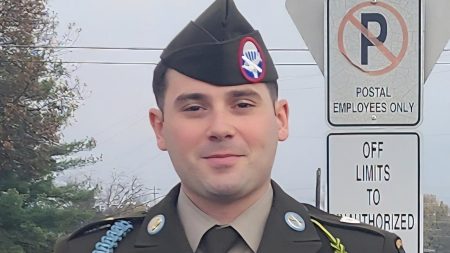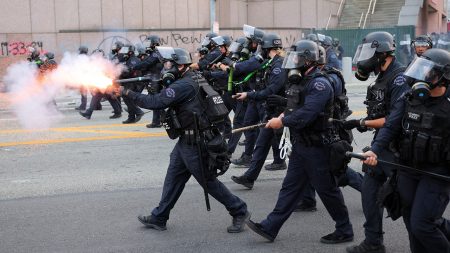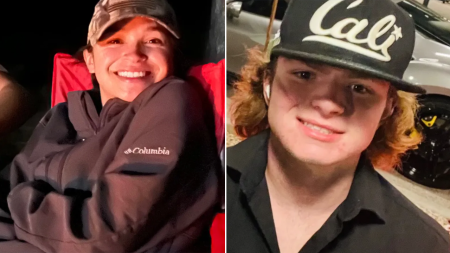The arrest of Briana Boston in Polk County, Florida, underscores the heightened anxieties surrounding threats against healthcare companies in the aftermath of the murder of UnitedHealthcare CEO Brian Thompson. Boston, 42, faces charges of making threats to conduct a mass shooting or an act of terrorism after allegedly warning a Blue Cross Blue Shield agent during a phone call, “Delay, deny, depose. You people are next.” This chilling statement directly mirrored language found on shell casings at the scene of Thompson’s murder, raising concerns about potential copycat threats and the broader climate of animosity directed towards the healthcare industry.
Boston’s alleged threat emerged from a dispute over recently denied medical claims. Frustration with the insurance claim process reportedly fueled her outburst, leading her to invoke Thompson’s murder as a means of intimidating the Blue Cross Blue Shield agent. While Boston later claimed she possessed no firearms and posed no real danger, her words resonated with the escalating tension surrounding the healthcare industry, particularly in the wake of Thompson’s highly publicized killing. This incident highlights the vulnerability of healthcare workers and the potential for seemingly isolated grievances to escalate into serious threats in a charged environment.
The murder of Brian Thompson, allegedly at the hands of Ivy League graduate Luigi Mangione, has sent shockwaves through the healthcare industry and beyond. The unusual circumstances of the murder, including the inscribed shell casings with the words “delay,” “deny,” and “depose,” have fueled speculation and polarized public opinion. While some have condemned the act of violence unequivocally, others have expressed a disturbing level of support for Mangione, viewing his alleged actions as a form of protest against perceived injustices within the healthcare system. This polarized response further exacerbates the tense atmosphere and raises concerns about potential copycat violence.
The Thompson murder has also prompted significant security responses from healthcare organizations. UnitedHealthcare, along with several other insurance companies and pharmacies, including some Blue Cross Blue Shield plans, have removed executive photos and names from their websites in a bid to protect their leadership from potential threats. This precautionary measure reflects the industry’s growing concern about the safety of its employees and executives, particularly in the context of heightened public scrutiny and potential retaliatory actions. The decision to remove executive information underscores the very real fear of copycat actions inspired by the Thompson murder and the broader sentiment of hostility directed towards healthcare companies.
Briana Boston’s arrest, though seemingly an isolated incident, is inextricably linked to the larger narrative surrounding the murder of Brian Thompson and the widespread unease directed towards the healthcare industry. Her alleged threat, echoing the language found at the Thompson murder scene, exemplifies the potential for copycat behavior and highlights the vulnerability of healthcare workers to escalating threats. The convergence of these events paints a disturbing picture of an industry grappling with both internal pressures and external threats, forcing companies to reassess security protocols and address the underlying tensions that contribute to this volatile climate.
The ongoing investigation into Thompson’s murder and the legal proceedings against both Mangione and Boston will undoubtedly continue to shape the conversation surrounding violence and threats against healthcare companies. It remains to be seen what long-term impact these events will have on the industry, but they serve as a stark reminder of the need for increased security measures, improved communication between healthcare providers and patients, and a broader societal dialogue about addressing the legitimate concerns that fuel public frustration with the healthcare system. The convergence of these incidents underscores the complex interplay between individual grievances, systemic issues, and the potential for violence in a climate of heightened tension and mistrust.










